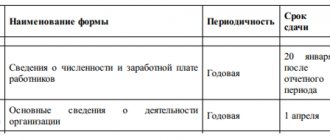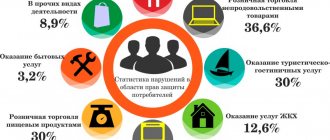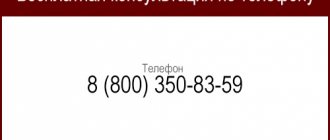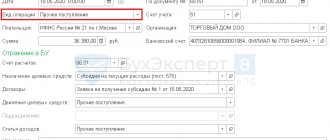How to verify that you belong to a small business
To do this, you need to obtain an extract from the Unified Register of Small and Medium Enterprises. You can do this as follows:
- go to the official website;
- enter registration data;
- print the finished document.
Since the statement already has an enhanced electronic signature, no additional certification is required.
IMPORTANT! According to the instructions of the Federal Tax Service of Russia dated August 8, 2021 No. GD-4-14 / [email protected], local tax inspectorates are not authorized to issue certificates indicating that a legal entity belongs to small and medium-sized businesses.
If you believe that your company is classified according to all the criteria as a small or medium-sized enterprise, but did not find it in the Unified Register on the website of the Federal Tax Service of the Russian Federation, you can submit an application yourself .
In this case, the tax inspectorate will analyze the information provided and, if the decision is positive, will manually enter the legal entity into the Unified Register. Also on the site you can correct incorrect data or enter additional information about your company (report the conclusion of new contracts, participation in partnership programs, list products and add contact information). In addition, you can apply for exclusion from the list. You can view the document by following the link.
Grounds for extending an on-site tax audit
Tax authorities may extend the period of an on-site audit of a taxpayer company several times. The grounds for extending inspection activities are expressly stated in the legislation. These include the following facts:
- The inspected legal entity is one of the largest taxpayers;
- During the inspection, inspectors received information about violations of tax laws by the company that required additional study and confirmation;
- In the territory where the inspection is taking place, force majeure circumstances apply;
- The company being inspected has several separate divisions. If the company has 10 or more such divisions, the period of control measures can be increased to 6 months;
- The company violated the deadlines for submitting the documents requested by the inspectors.
An on-site tax audit may be extended for other reasons. When deciding whether to extend the inspection, factors such as:
- Length of the period under review;
- The volume of required taxpayer documentation that is subject to analysis;
- The number of taxes and fees that are being audited;
- Number of types of activities of the taxpayer;
- Organizational structure and internal technological processes in the audited company.
It should be emphasized that extension of the on-site inspection to 6 months is possible only in exceptional cases. The Federal Tax Service of Russia directly names one such case in Order No. ММВ-7-2/ [email protected] dated 05/08/15. This is the presence of 10 or more separate divisions within the audited enterprise.
When deciding on extending the period of inspection of a legal entity to 6 months, inspectors must analyze all the factual circumstances of the case, evaluate evidence indicating the impossibility of carrying out inspection activities within the period established by law.
Who will be checked regularly, despite the moratorium?
There are certain criteria based on which it is determined whether to release or not. Areas of activity not exempt from inspections:
- Healthcare;
- Education;
- Social services;
- Heat supply;
- Electric power industry.
Besides:
- If the results of previous inspections revealed serious violations of the Code of Administrative Offenses of the Russian Federation, then such a business is not exempt from scheduled inspections;
You can view the full list by following the link.
IMPORTANT! Even if you are subject to a moratorium, this does not mean at all that you will not be checked. No one canceled unscheduled inspections
Inspections of organizations and entrepreneurs in 2021
The Government of the Russian Federation, by resolution No. 438 dated April 3, 2020, established the features of state and municipal control (supervision) in 2020. It's all because of the coronavirus pandemic.
Supervisory holidays
Until the end of 2021, small and medium-sized businesses were exempted from scheduled inspections.
The types of permitted unscheduled inspections were established, as well as cases when officials were allowed to travel to conduct them.
The procedure for conducting supervisory inspections is regulated by Federal Law No. 294-FZ dated December 26, 2008 “On the protection of the rights of legal entities and individual entrepreneurs in the exercise of state control (supervision) and municipal control.” These are inspections by sanitary and epidemiological stations, fire departments, labor inspectorates, local governments, etc.
The commented resolution comes into force on April 14, and it affects all types of state control (supervision) provided for by Federal Law No. 294-FZ of December 26, 2008, with the exception of tax and currency control. Also does not apply to customs checks carried out by customs authorities.
Who does the regulation apply to?
A special procedure has been established for:
- companies and individual entrepreneurs classified as SMEs, information about which is included in the unified register of small and medium-sized businesses;
- non-profit organizations whose average number of employees in 2021 does not exceed 200 people.
An exception is political parties and non-profit organizations included in the register of non-profit organizations performing the functions of a foreign agent.
What checks should you expect?
In relation to these payers in 2021, only unscheduled inspections can be carried out, and only if:
- there are facts of harm to the life or health of citizens or the threat of such consequences, the occurrence of emergencies of a natural or man-made nature (only in agreement with the prosecutor’s office);
- it is necessary to monitor the execution of a previously issued order to eliminate violations that create an immediate threat of harm to the life and health of citizens (only in agreement with the prosecutor’s office);
- the order to conduct an inspection was given by the president or the government indicating a specific company or individual entrepreneur, and also when there is a request from the prosecutor to conduct an unscheduled inspection as part of supervision over the implementation of laws based on materials and appeals received by the prosecutor’s office;
- an application has been received from a legal entity or individual entrepreneur for the provision of legal status, special permission for the right to engage in certain types of activities or to carry out other legally significant actions;
- there is a request from licensees for licensing authorities to conduct unscheduled on-site inspections to determine whether the orders of such authorities have been fulfilled ahead of schedule;
- it is necessary to control the fact of execution of a previously issued order, the implementation of which renews the previously suspended license, accreditation or other permit.
Please note: the listed types of inspections will also be carried out in relation to companies and individual entrepreneurs that are not classified as SMEs. In addition, they will continue to undergo scheduled inspections if the company’s activities or the production facilities it uses relate to:
- high or extremely high risk categories;
- first class (category) of danger;
- first hazard class of hazardous production facilities;
- first class hydraulic structures.
Scheduled inspections will not be canceled for those organizations that are subject to the regime of constant state control (supervision).
Keep in mind that no one is exempt from inspections by the prosecutor's office. Most often, prosecutors check companies and entrepreneurs based on received complaints from employees.
How will they check
Inspections are carried out only using means of remote interaction, including audio or video communication, with the exception of certain cases.
The travel of officials of state control (supervision) bodies and municipal control bodies during inspections is allowed in some cases. For example, when the departure of officials of state control (supervision) bodies, municipal control bodies is provided for by order of the President, order of the Government, or requirement of the prosecutor.
Please note that decisions to exclude firms and individual entrepreneurs from annual plans for routine inspections must be made within 7 working days after the commented resolution comes into force.
As officials explain, all these measures are related to the epidemiological situation in the country and are aimed primarily at fighting the infection, preserving the life and health of citizens and supporting business during the pandemic.
Will small businesses be exempt from inspections altogether?
No, in some situations and for some types of activities “supervisory holidays” do not apply.
Scheduled inspections will be able to be carried out in the following cases: - conducting scheduled inspections within the framework of types of state control (supervision), for which risk categories, classes (categories) of hazard are established, as well as criteria for classifying the activities of legal entities and individual entrepreneurs into a certain risk category;
— scheduled inspections of legal entities and individual entrepreneurs carrying out types of activities determined by the Government of the Russian Federation;
— scheduled inspections of persons brought to administrative responsibility for gross violation of mandatory requirements;
— scheduled inspections carried out on licensed types of activities, etc.
What is the Unified Register of SMEs?
“Unified Register of Small and Medium Enterprises” is a specialized service launched on August 1, 2021, maintained by the Federal Tax Service of Russia.
One of the goals of creating the register is to free organizations and individual entrepreneurs related to small and medium-sized businesses from the need to confirm their status when receiving benefits, preferences and support measures from the state. The register is formed, first of all, on the basis of information contained in the Unified State Register of Legal Entities (USRIP), as well as information from the submitted tax reports. That is, initially without the participation of an organization or individual entrepreneur. If your organization (IP) is not in the register, although it should be there, then you should send an application to check the register information.
“Supervisory holidays” started earlier
During a meeting between Vladimir Putin and Yuri Chaika, who holds the post of Prosecutor General of the Russian Federation, the latter noted that business inspections of some economic entities had ceased to be carried out this year.
The law, which provides for a three-year moratorium on scheduled inspections of small businesses, was taken into account when drawing up the inspection plan for the current year.
The Prosecutor General's Office, as they say, was proactive. Realizing full well that the need to adopt the aforementioned law had ripened a long time ago, she decided to abandon inspections of the activities of enterprises that had not committed gross administrative offenses over the past 36 months.
A similar decision was made regarding 12,000 agricultural producers. According to statistics, the overwhelming majority of representatives of this sphere are representatives of small businesses.
In addition, the Prosecutor General's Office of the Russian Federation organized a special meeting, in which representatives of a number of regulatory authorities took part. Their attention was focused on the fact that when drawing up an inspection plan for entrepreneurs, one should be guided by the law that came into force on January 1, 2016.
Who is not entitled to “vacations”
Will small business inspections be completely abolished next year? No. Those companies that, during the previous 3 years, committed gross violations of current legislation in their work will not receive full exemption.
Supervisory authorities will be able to check violators only on a scheduled basis. However, if those being inspected feel that the visit was carried out in violation of the law, they can appeal against the behavior of officials in the prescribed manner.
If the actions of the inspectors are illegal, that is, they violate the law regulating the introduction of a three-year moratorium, the inspection will be recognized as a “gross violation”, and the results obtained during the inspection will be invalid.









